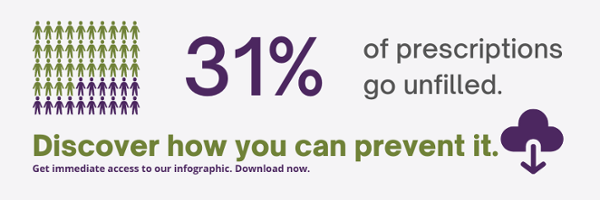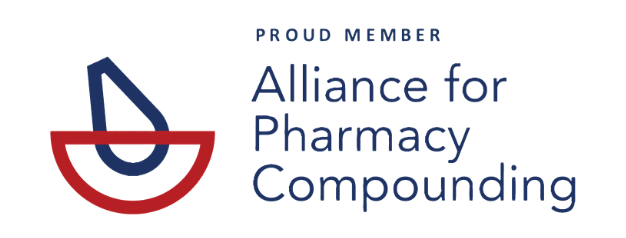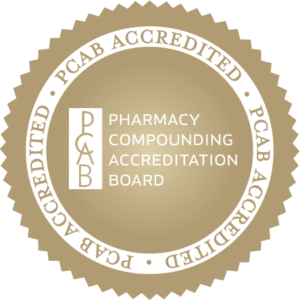When medication is part of a treatment plan, the success of that plan relies on the patient actually following the medication plan. Nonadherence (or non-compliance) to medication instructions (e.g. dosage, length of treatment) can have a significant impact on the patient, the patient/doctor relationship, the healthcare system as a whole, and even the doctor’s bottom line.
Why is patient compliance with medication important?
The treatment of any illness, especially chronic illnesses, can rely on the patient taking medication (and taking it correctly) over a long period of time. The success of that treatment is directly tied to whether a patient follows through by taking the prescriptions, as they are prescribed. According to the National Institutes of Health (NIH), as much as 50% of treatment failures can be attributed to a patient’s lack of compliance with a prescription treatment plan.
The impact of those failures is significant. The World Health Organization (WHO) estimates that medication nonadherence leads to approximately 125,000 deaths and 25% of hospitalizations each year in the United States. Additionally, the cost of nonadherence in the U.S. healthcare system is estimated at $100-$300 billion each year when direct and indirect costs are included.
Physicians want a treatment to be successful because they genuinely care about patients. They also care about their business, as an unsuccessful treatment plan could keep a patient from coming back. New business models within the healthcare industry could increase the financial impact of that lack of success. In 2018, the Medical Group Management Association (MGMA) reported that 25% of medical practices had “compensations tied to quality and patient experience metrics.”, and that trend is expected to grow.
Non-compliance with prescription care is 100% preventable
Nonadherence to a medication treatment plan can be the result of a number of factors but include the patient not understanding the instructions, intolerance to the prescribed drugs, and the inability of a medical team to provide sufficient ongoing instruction and education to increase the probability the treatment will be completed successfully. For all of these issues and others, a partnership with a compounding pharmacy in the treatment plan can reduce the negative health and financial impact.
In terms of patient adherence, NIH states pharmacists are able to recognize barriers to that adherence. As part of the healthcare team providing care on specific treatment plans, a pharmacist has the path and system for the community-based treatment concept which the NIH recommends as one of the answers to nonadherence. Including pharmacists along with patients in the treatment planning process makes patients “more active in the continuum of decision making about their therapy and related health consequences”. When compounding pharmacists are included in the treatment planning they are able to offer a personalized medication option and provide follow-up prescription care.
Doctors and other healthcare professionals have the tools available to improve patient compliance with medication-based treatment plans. The impact that non-compliance has on the patient is a higher chance of treatment failure and serious medical consequences. The impact on a physician could include loss of the patient’s business and/or reduced compensation. Partnering with the right compounding pharmacy is key to preventing medication noncompliance.
Health Dimensions Clinical Pharmacy has been providing pharmaceutical solutions to doctors and their patients since 1996. Locally owned and based in southern Michigan, Health Dimensions Clinical Pharmacy was among the first compounding pharmacies to earn accreditation by the Pharmacy Compounding Accreditation Board (PCAB) of the Accreditation for Healthcare Commission. Our mission is to partner with physicians to provide service excellence, accuracy, and rapid response to patient needs. To learn more about building a partnership, call Health Dimensions Clinical Pharmacy at (800) 836-2303.












